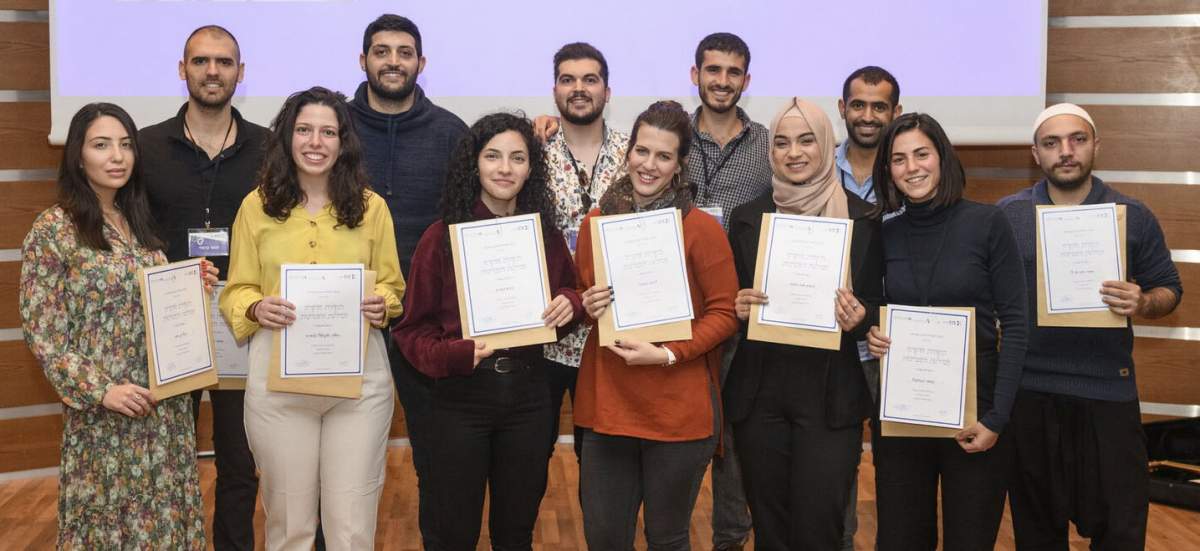Are you a journalist? Please sign up here for our press releases
Subscribe to our monthly newsletter:

Over the 2019 Hanukkah holiday, scholarships were presented to twelve outstanding students who participated as tutors in the national PERACH tutoring program, a vehicle for social progress. The Avraham Agmon Excellence Scholarship ceremony took place in the Barvaz Auditorium of the Davidson Institute of Science Education – the educational arm of the Weizmann Institute of Science – with families, organizers and PERACH activists in attendance. This year’s format – videos of the recipients based on the popular TV show “You Can’t Ask That” – showed that the program, which has been ongoing since it was founded forty-six years ago, is stronger than ever.
As the participants answered questions about their personal and educational paths over the year, the audience learned, for example, that Elior Omer of the Hebrew University in Jerusalem was given the task of tutoring a student who was failing math and who could not sit to study for more than ten minutes at a time. Over the course of the tutoring period, Elior worked to encourage his tutee to experience success – through everything from soccer to a visit to the University. By the end of the period, the tutee was studying for four hours straight, and he got a 100 on his math test.
Saja Azzam of Tel Aviv University approached her young tutee, a seven-year-old enrolled in a program for children of prisoners, through art. Saja at first found him to be withdrawn and fearful. She helped him develop his natural talent for art – leading to an exhibit of his work in his school at the end of the year – and she gradually coaxed him out of the house and into interactions with other children. The prize committee said of her: “Giving him the tools to continue to succeed, there is no doubt she changed his life.”
Haitham Dahrug of the Technion also helped his ten-year-old tutee to go from being closed and lonely to one who began to see himself as a participant and even a leader, who learned to believe in himself. Through card games and videos, the child began to confide in him, and Haitham became a sort of big brother to the child, helping him cope with all the difficulties in his life and leading him to aspire to attend the Technion, just like Haitham, when he is older.
Alon Galron, head of the PERACH program, welcomed the participants to the ceremony, which was attended by Prof. Daniel Zajfman, chair of the PERACH Board of Directors, Yael Simantov Cohen of Israel’s Council for Higher Education and Dr. Liat Ben-David, general director of the Davidson Institute of Science Education.